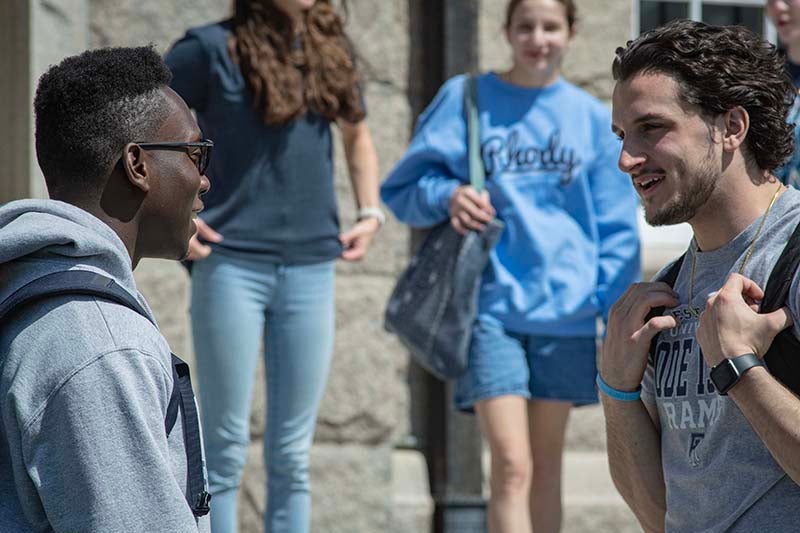URI’s Feinstein College of Education was awarded a $300,000 grant from the Rhode Island Foundation to enhance its programs targeting students of color planning to become teachers, and develop a teacher-preparation program at Highlander Charter School that includes admissions testing assistance and promotes continuing education credits. The Urban Residency Initiative Pathways to Education program is aimed at increasing the skills and sense of belonging for urban high school students seeking admission to educator preparation programs, in turn, increasing enrollment, completion, and employment for teacher candidates from racially, ethnically, and linguistically diverse backgrounds.
The project will capitalize on the experiences of URI’s Talent Development alumni and current scholars, along with URI students, faculty, staff, and administrators committed to diversifying the state’s urban education workforce.
“Together, we will develop, implement, evaluate, and share evidence about a dual and concurrent enrollment program for urban high school students interested in education careers,” said Diane Kern, professor of teacher education and primary investigator for the grant. Tashal Brown, assistant professor of Urban Education and Social Studies, and Ph.D. student Megan Howe co-wrote the grant proposal with Kern.
“Diversifying the teacher workforce in pursuit of the educational success of students is a strategy that works. These important investments will help address achievement gaps in urban districts by advancing programs designed to attract and support teachers of color,” said David N. Cicilline, president and chief executive officer of the Rhode Island Foundation, in a press release.
Research has shown substantial benefits when students are matched with a teacher of their race. According to a Johns Hopkins report, low-income Black students who have at least one Black teacher in elementary school are 29 percent less likely to drop out of high school.
The Urban Residency Initiative Pathways to Education program will run for two years through June 2025.

